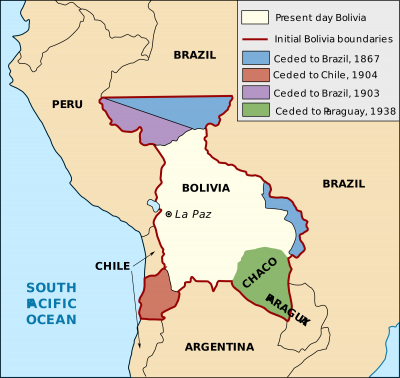Lithium, a Strategic Resource: Here’s Why The US Wants To Break Bolivia To Bits With Hybrid War

Of relevance to the political crisis in Bolivia, first published by Global Research in August 2016
So I was scanning Telesur’s website the other day and a pretty interesting story caught my eye. It said that Bolivia had begun exporting 10 tons of lithium to China as the start of what the country hopes will flourish into a multimillion-dollar partnership in the near future.
The reason why this is such a big deal and I’m talking about it with you all is because lithium is an integral component of most of our cell phones and electric car batteries, and estimates vary over the size of Bolivia’s deposits, with the article saying that the government says it holds 70% of the global total, while the US retorts that this is just about 7%, or 10x less. Regardless of what the actual number really is, the fact that China – the factory of the world – is able to diversify its imports of this rare earth mineral strengthens Beijing’s supply strain security with this strategic commodity, and it also pairs well with the billion-dollar coltan investment that it made in the Congo a few months back and which I also covered at the time on Context Countdown. Taken together, China is positioning itself for dominance in the cell phone and electric car industries, which will make it a future leader in these industries.
So what Bolivia is doing is very helpful for the emerging Multipolar World Order in general, and since we’re on the topic of the country’s contribution to geopolitics, it’s worthwhile including a few of its other projects that are just as helpful. Russia is deepening its cooperation with the Andean state in the oil, gas, and nuclear energy industries, and Russian representatives have said that they’re interested in military exports to the country and in boosting bilateral commercial trade. Furthermore, China and Bolivia have signed agreements on military cooperation too, particularly for Beijing to send it new armored personnel carriers which it just made good on a few weeks ago.
Everywhere we turn, it seems, it looks like Bolivia is more and more becoming the latest joint project of the Russian-Chinese Strategic Partnership in helping to construct a multipolar world, but precisely for that reason, we need to watch out for Hybrid War threats against the plurinational state, as Bolivia is officially called. These include the threat of foreign-provoked conflict between the 38 ethnic groups in the country, militarized labor unrest such as the mining strikes that are ongoing right now, transnational drug cartels that operate along the Brazilian and Paraguayan borders, a traditional Color Revolution, and the possibility of a ‘regime reboot’ campaign to promote the divisive Bosnification of Bolivia into an Identity Federation of quasi-independent statelets that the US could more easily divide and rule. Bolivia had better watch out, because the more that it bravely stands up to the US by embracing the multipolar leaders of Russia and China, the bigger the bullseye on its back becomes.

